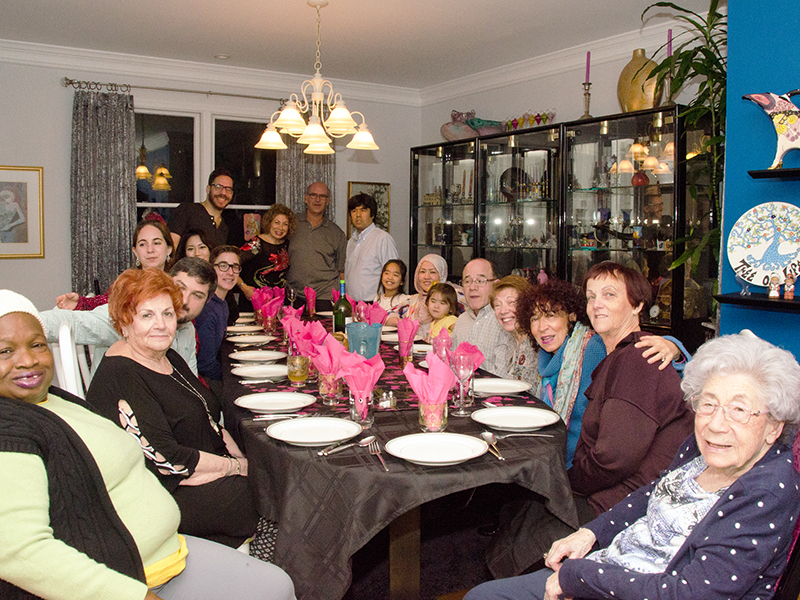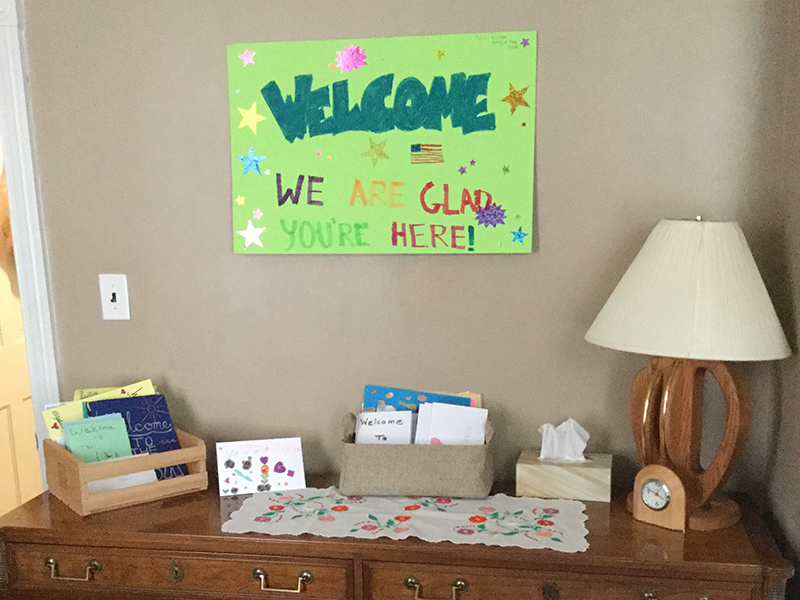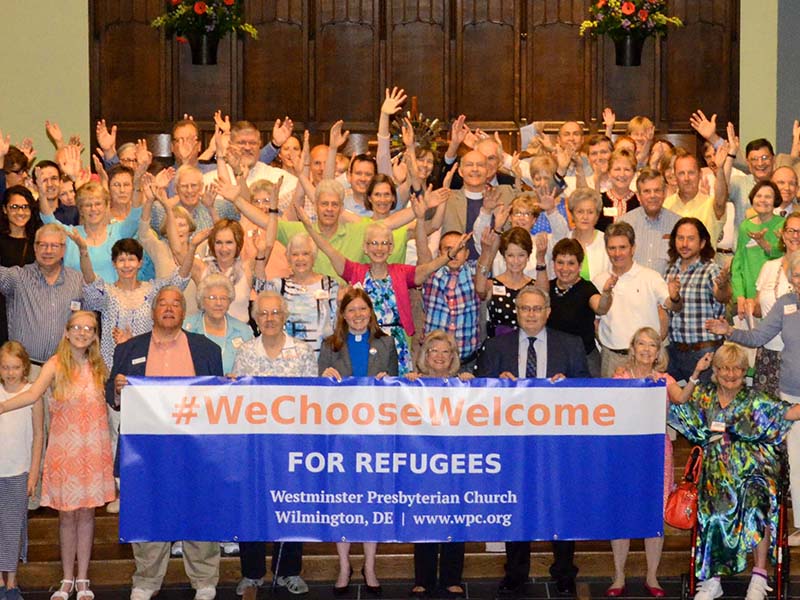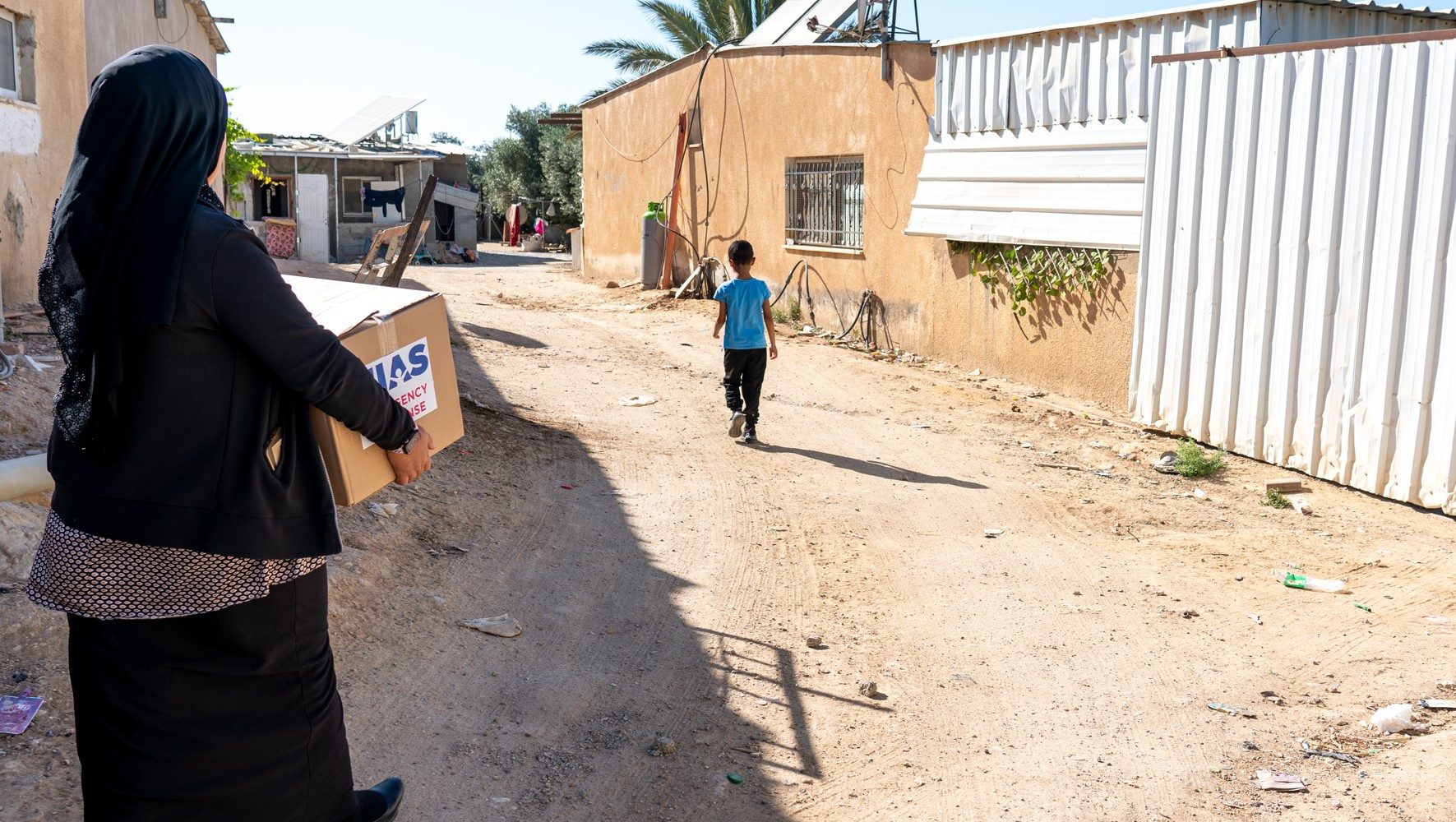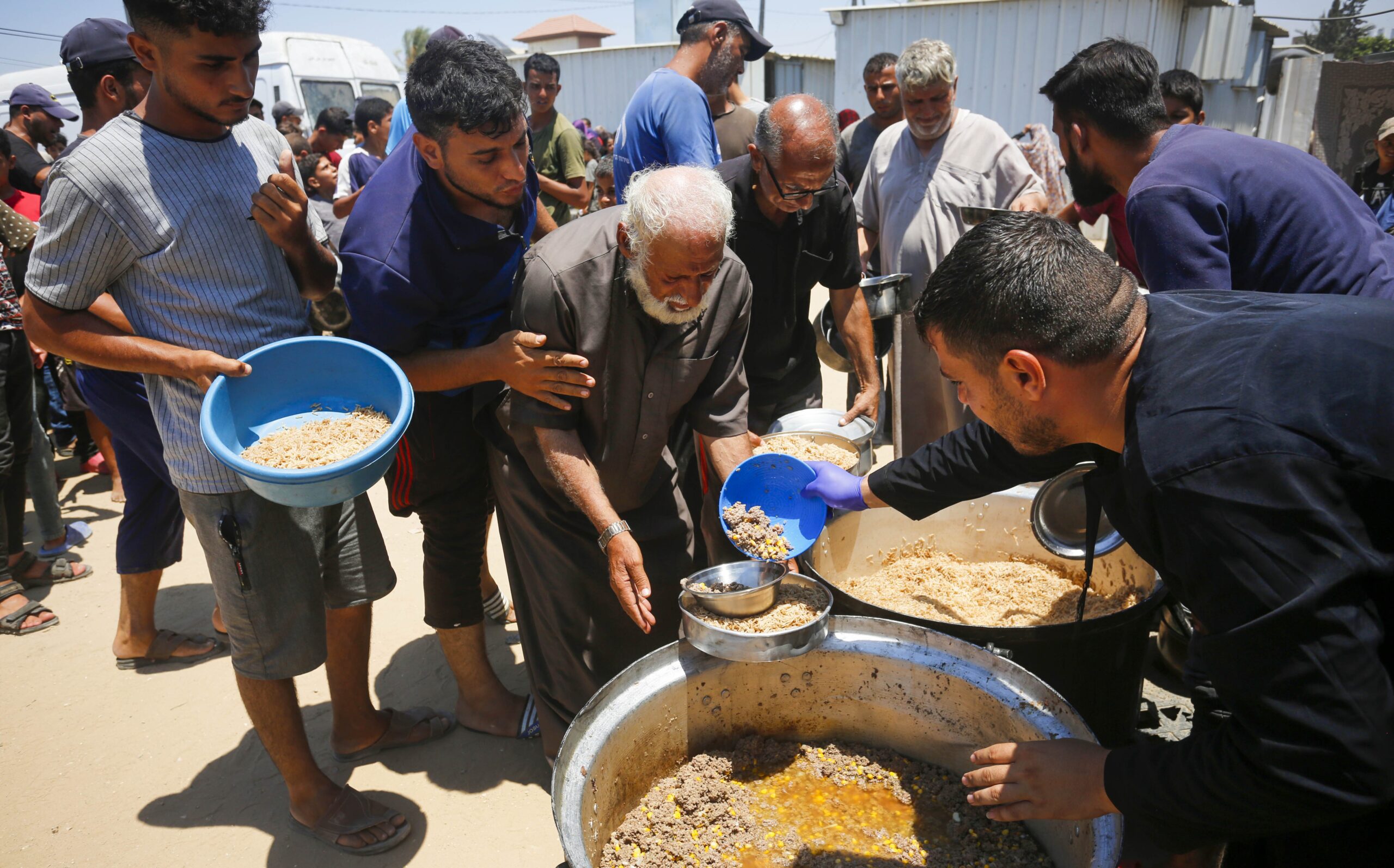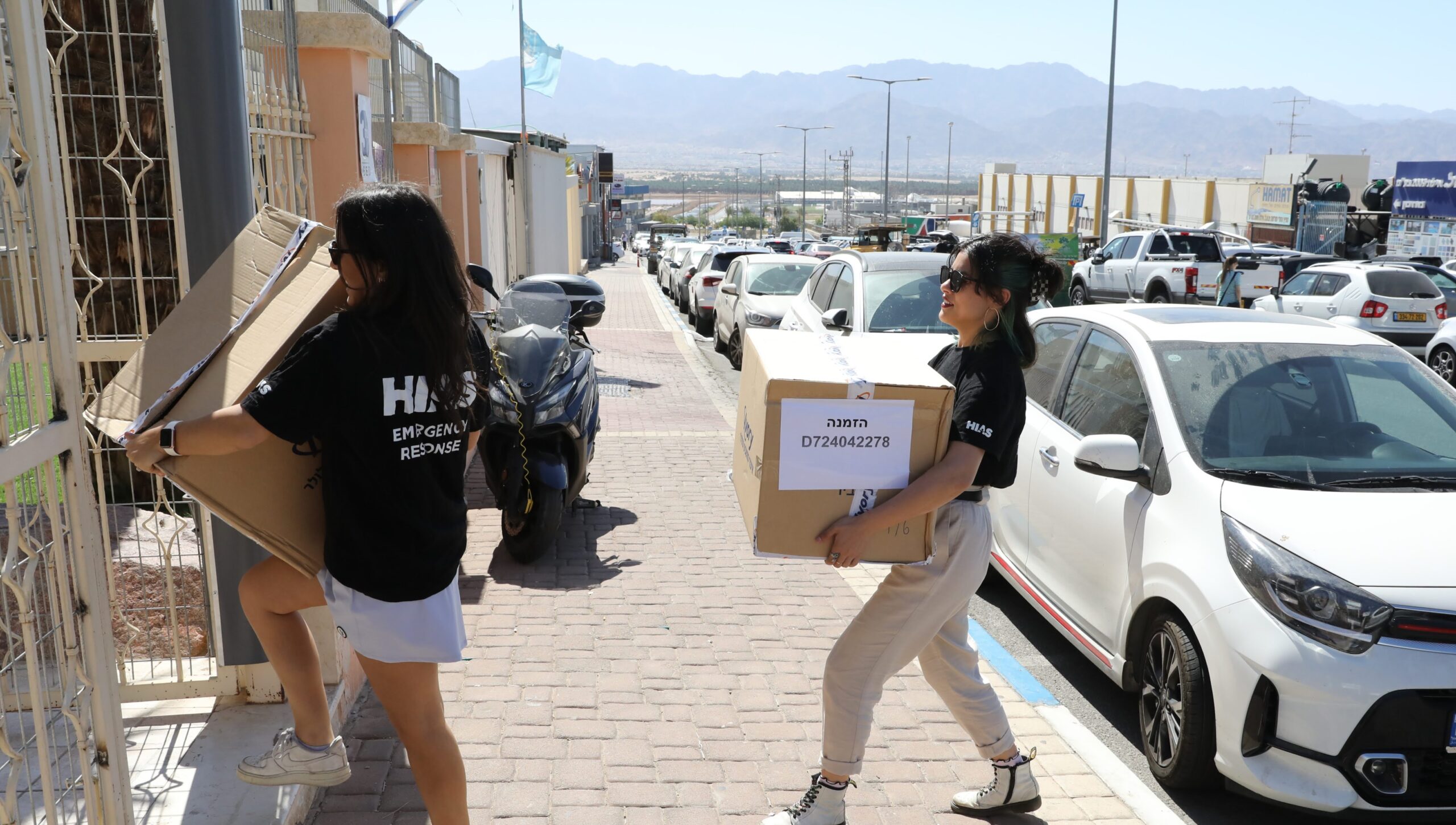Interfaith Groups Welcome Afghan Refugee Family to Delaware
By Gabe Cahn, HIAS.org
Nov 27, 2017
When two churches and a synagogue join forces to welcome a refugee family, good things happen.
Originally, Westminster Presbyterian Church, Hanover Presbyterian Church, and Congregation Beth Shalom of Wilmington, Delaware each intended to support newly arrived refugee families on their own. But, when the pace of arrivals slowed under the Trump Administration, Jewish Family Services of Delaware—HIAS’ local resettlement partner in the area—asked the three congregations if they would be willing to team up.
“Initially, we thought we would prefer to go about it on our own,” explains Mary Vane, a lead volunteer at Westminster, “but it has worked out extremely well and provided unintended benefits.”
“It’s been a very good collaborative effort.”
Each congregation brings different communal resources and expertise to the table: Westminster runs a home furnishing program helping individuals and families transition out of homelessness; Hanover operates a clothing closet and food pantry; and Beth Shalom’s congregants offer a wide variety of specialized services and capacity for material support.
Working together to apply these resources on short notice, the interfaith coalition partnered with JFS Delaware to assist in the resettlement of the Rahmadi* family.
Unable to live safely in Afghanistan because of the father’s work as an interpreter for the U.S. military, the family of four applied for resettlement and arrived in Wilmington in March 2017. It was bitter cold and snowing in Delaware the night representatives from JFS and the three congregations headed to the airport to pick up the family.
“I remember I ran over to the house to turn on the heat,” says Jill McCracken, a volunteer from Hanover Presbyterian who works in the English Language Institute at the University of Delaware. As she was pulling up, she noticed a utility truck working on the sidewalk and learned that the water had been turned off because a nearby pipe had burst and was flooding the neighbor’s house.
After briefly contemplating the prospect of bringing the family to a hotel for their first night, she and the others decided to move forward as planned.
“They’d been unsettled enough,” McCracken recalls. “We thought, ‘let’s just bring them here and make do for one night.’”
The water was back flowing the next day, and in the eight months since, the Rahmadis have rarely looked back.
In addition to securing and furnishing housing for the family with their two young daughters (Westminster underwrote the lease and volunteers from Beth Shalom collected furniture, decorated, and stocked the pantries) the interfaith group has helped Rahim* land a full time job with benefits as a messenger and office services assistant at a local law practice, enrolled his two daughters in Jewish Community Center summer camp and then in JCC-affiliated day school—all on scholarship—and are assisting Hamdiyah*, the mother, receive accreditation in the United States for her undergraduate degree in order to pursue employment opportunities. All this while working with the family to get settled into the daily life of a country they are still getting to know.
“Everything happened so fast,” Rahim Rahmadi wrote in a Westminster congregational newsletter earlier this fall. “I understand now in America you can be anything you want to be.”
Mary Vane, who is currently assembling adult drivers ed materials for refugees in the community, says that she loves watching the sense of discovery and accomplishment on the faces of the people she helps when they have new experiences.
“Seeing their joy when Rahim got his first American job, it was an equally exciting moment for the volunteers.”
JFS RISE (Refugee Integration Support Effort) is what JFS Delaware calls its Refugee and Émigré Services. The JFS RISE team is comprised of JFS professional staff and JFS RISE volunteers, as well as community partners.
JFS Delaware describes this approach to supporting recently arrived refugees as the embodiment of the Jewish value that states: "Kol Yisrael arevim zeh la-zeh—the inherent responsibility that each of us has to assist and care for other human beings.”
Faith Silver, a recently retired chemist and volunteer from Beth Shalom, asserts that this model of direct sponsorship is effective because it allows the community to invest in the family’s success.
“It’s not just, ‘do we have a spare couch to offer?’ We really want to push them toward sustainability,” she says. “So continually being there to teach them how to use public transit, how to get to appointments on their own, how to shop in the supermarket leads to independence much faster.”
“Whether it’s a single congregation or multiple congregations, when you can say ‘this is my family now, and I will do everything I would do as if I was helping my own family member,’ that level of responsibility lasts over time,” Silver adds.
“A committee member went over to their apartment the other day just to help them sort mail and understand difference between junk mail and the items they need to pay attention to.”
Part of that responsibility also includes exposing the Rahmadi family to new American and religious traditions. The Rahmadis have attended Shabbat dinners, Passover seders, Easter gatherings, and last week enjoyed their first Thanksgiving.
Karolin and Mark Lipman, members of Congregation Beth Shalom, hosted the Rahmadi family in their home for Thanksgiving.
“I am forever grateful that my family had the opportunity to come to this country and live free lives and live the American dream,” Karolin Lipman tells HIAS.org. “We have so much to be thankful for, especially our new friends.”
More than 60 years ago, Karolin’s parents and sisters were Jewish refugees who came to the United States from Hungary with help from HIAS. Her 94-year-old mother joined the Rahmadis and other guests in bringing dishes to the meal from their home countries. In total, foods from six countries were represented at the table.
“We must recognize ourselves in our neighbors on the planet,” says Jill McCracken, who now coordinates transportation for the Rahmadis and other newly arrived refugee families in the area. “It’s always true, but it’s absolutely imperative in the current political climate.”
For Mary Vane, this is about putting her Christian faith into action by welcoming the stranger.
“If we really believe that call, it shouldn’t matter where they are coming from,” she notes.
*Names have been changed to protect the privacy of clients.
For more stories about refugees and the communities that welcome them, follow HIAS on Facebook, Twitter and Instagram.
